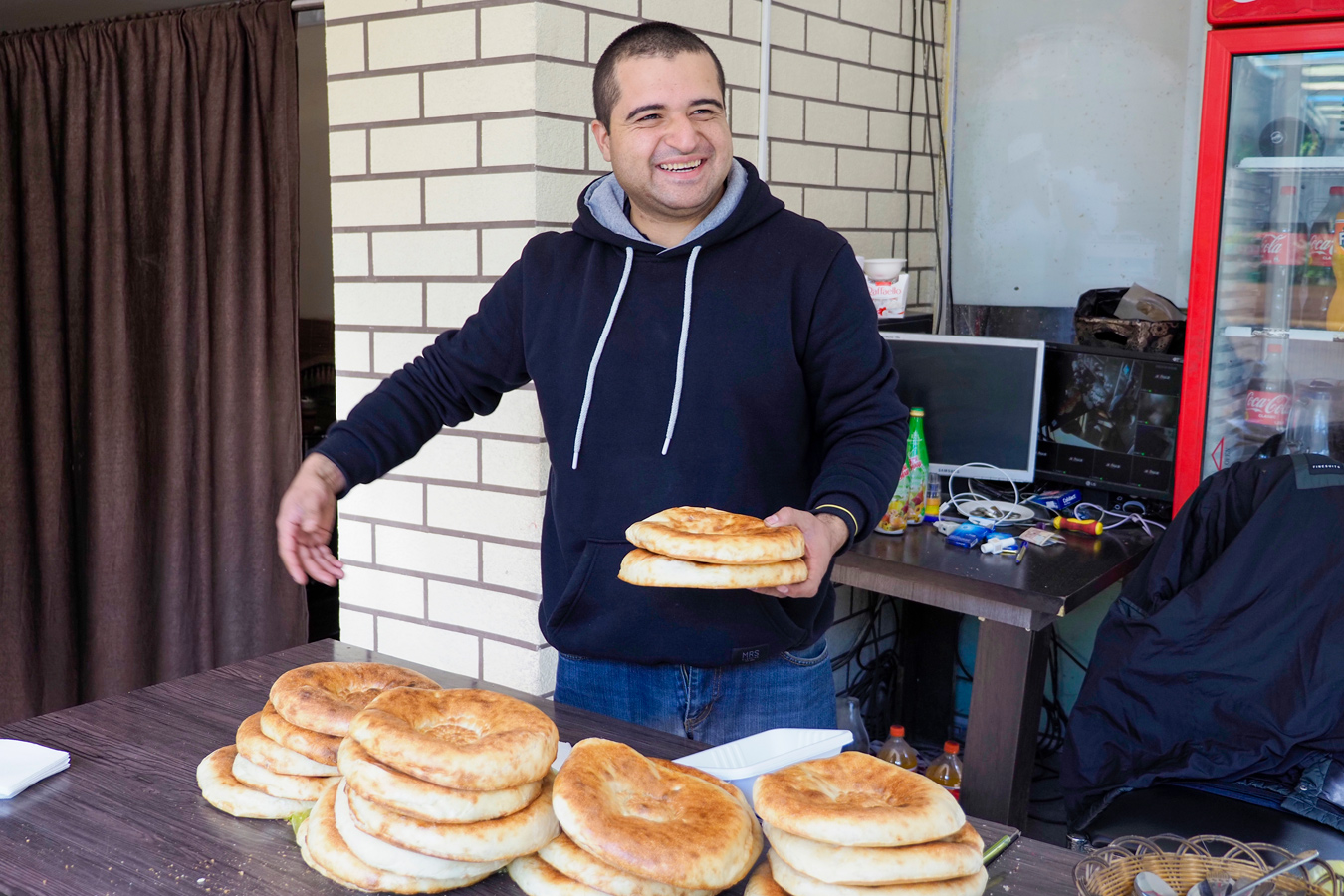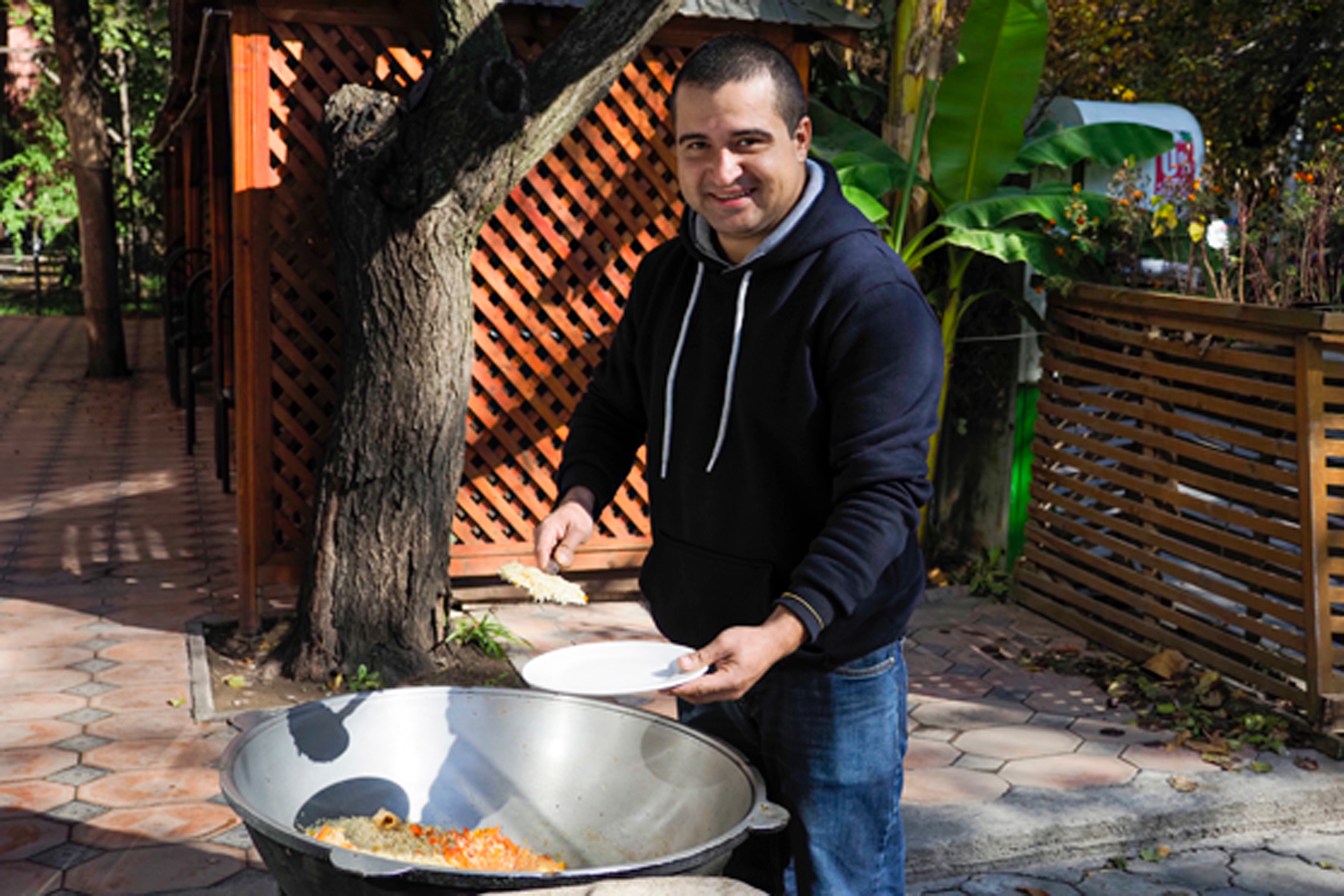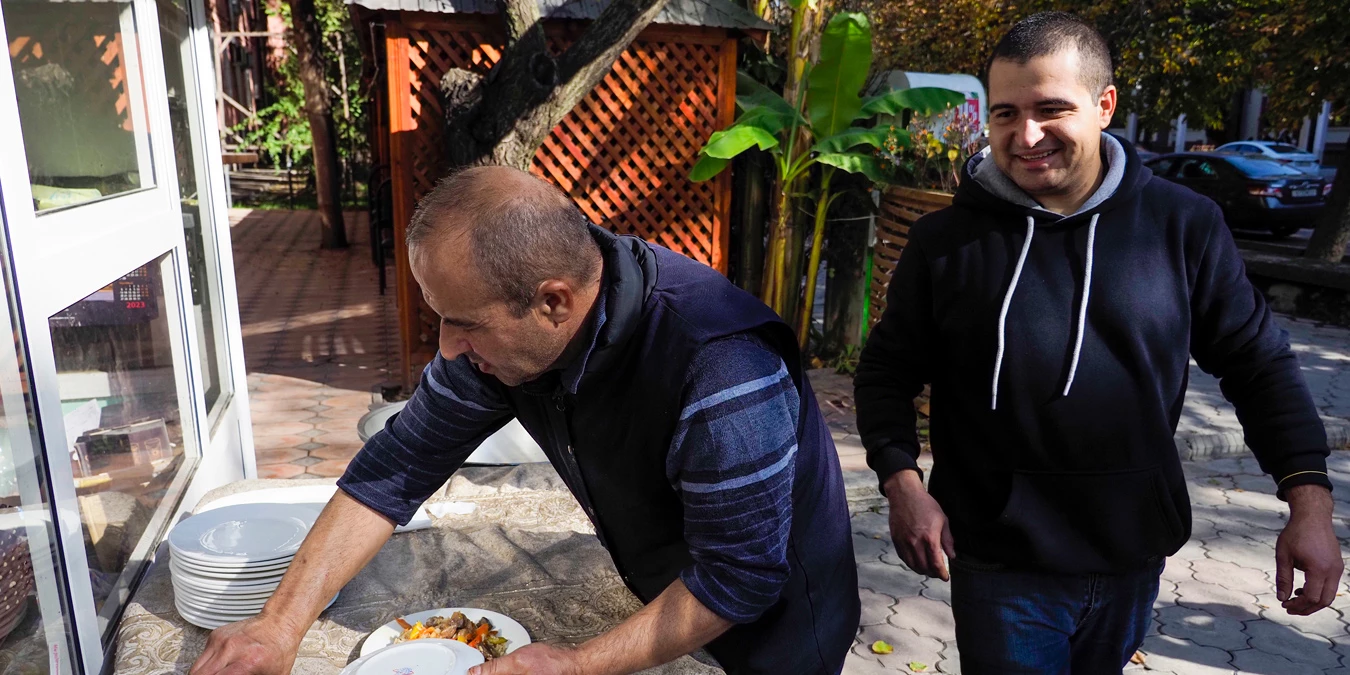Shortly after graduating from university, Nurov Furkat opened a café in his hometown of Dushanbe, Tajikistan.
The only problem, it was March 2020. Weeks after, the now 25-year-old, Furkat secured a property, COVID-19 hit Tajikistan in full force, shuttering businesses across the Central Asian country of 10 million.
“I felt totally lost,” Furkat recalled recently. “Can you imagine… suddenly facing the prospect of bankruptcy? It was a terrible feeling.”
 Furkat
Nurov bakes traditional bread (non), which varies
in taste, size and appearance across Central Asia. Photo courtesy:
Nazim Kalandarov.
Furkat
Nurov bakes traditional bread (non), which varies
in taste, size and appearance across Central Asia. Photo courtesy:
Nazim Kalandarov.
To save his business Furkat took out a small loan from the microfinance organization Humo, an IFC partner. The money helped tide Furkat over and today the café is bustling, serving upwards of 300 customers a day.
Humo, which has more than 80,000 customers, was a lifeline for smaller businesses during the early days of the pandemic, which cut three percentage points off Tajikistan’s once-sterling 7.2 percent annual growth rate.
Faced with lockdowns, the institution further promoted Humo Online, an app that provided access to digital financial services, and invested in other digital technologies. Whilst other lenders were pulling back, Humo was able to continue providing loans and other financial services, which helped struggling families and small businesses stay afloat.
“Since we started our operations in 2004, Humo has faced many external challenges, including the global financial crisis in 2008, and it approaches such crises with patience, problem-solving skills and teamwork,” said Firdavs Mayunusov, Humo’s General Director.
To help Humo ramp up its lending to small-scale entrepreneurs, IFC invested the equivalent of $2 million in Tajik Somoni in February 2020. IFC’s local currency financing was provided with the support of the International Development Association’s Private Sector Window, which helps mobilize investments in challenging markets.
The partnership has helped Humo provide longer-term local currency financing, which is otherwise limited in Tajikistan. The financing gap for micro, small, and medium enterprises stands at about $1.45 billion or 18 percent of the country’s GDP.
Despite facing overdue loans and high operating costs, microfinance institutions, like Humo, kept lending throughout the pandemic. Helping customers restart their lives with smaller-sized and speedily disbursed micro loans.
The investment in Humo was part of a larger effort by IFC to support the development of Tajikistan’s private sector, which has been squeezed by the state and informal sector, and has thus played a limited role in the economy.
In addition to a difficult business environment and aging infrastructure, access to loans represents a major challenge for firms. Many do not seek bank credit for three main reasons: lack of long-term financing, high lending rates, and collateral requirements.
Creating sound, inclusive, and sustainable financial markets is essential for developing the private sector and unlocking the potential of entrepreneurs, say experts.
Working with financial institutions to increase access to credit for smaller businesses is only one part of IFC’s activities in Tajikistan. It is also helping to build credit-reporting and secured-transaction systems and advising the government on the development of a national inclusion strategy, which will help channel credit to those who need it most. IFC is also working to expand the use of digital financial services and introduce innovative housing microfinance products for low-income people in remote areas.
In many ways, Furkat, the restaurateur, is a testament to the potential of Tajikistan’s private sector.
While businesses were shuttered by COVID-19, he used the loan from Humo to renovate his restaurant and buy new equipment, preparing for the day it could open to the public.
 At
Nurov’s café, plov (osh) is the most popular dish and one of the most beloved dishes in Tajikistan
and Central Asia. Photo: Nazim Kalandarov.
At
Nurov’s café, plov (osh) is the most popular dish and one of the most beloved dishes in Tajikistan
and Central Asia. Photo: Nazim Kalandarov.
That would come in October 2020. The café, with its variety of local fare and summer terrasse, has become a neighborhood hotspot. Furkat has 10 full-time employees and plans to acquire 100 square meters of land next door, where he wants to build a winter-ready extension.
"Now I can confidently say that our restaurant has become a favorite place for many customers."
Published in December 2022
